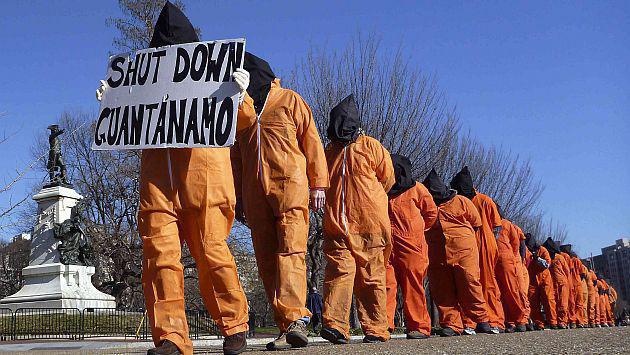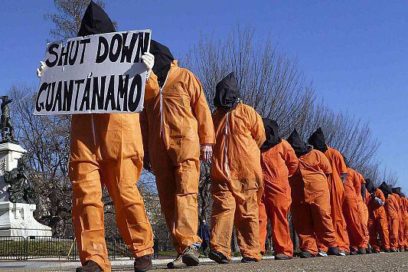
WASHINGTON.—The President of the United States, Barack Obama, announced yesterday that he had sent a plan to close the prison at the illegally occupied territory of Guantánamo Bay, in eastern Cuba.
Speaking to the nation, the President recognized “For many years, it’s been clear that the detention center at Guantánamo Bay does not advance our national security – it undermines it.”
Flanked by Vice President Joe Biden, and Defense Secretary Ashton Carter, Obama justified his decision by explaining that maintaining the detention center is “counterproductive to our fight against terrorists, because they use it as propaganda in their efforts to recruit. It drains military resources, with nearly $450 million spent last year alone to keep it running, and more than $200 million in additional costs needed to keep it open going forward for less than 100 detainees.”
The President acknowledged that it would be a challenge to convince U.S. citizens that terrorists should be detained on U.S. soil, rather than keeping them locked away “in some distant place.”
Regarding the transfer of detainees to countries other than the U.S., Obama assured, “We’ll continue to securely and responsibly transfer to other countries the 35 detainees – out of the 91 – that have already been approved for transfer.”
The plan is for 30 to 60 prisoners to be transferred to U.S. soil, a move that Republicans, who control Congress, oppose. As The New York Times noted in an article on the announcement, while Obama made no reference to potential replacement facilities, these could include military prisons in Leavenworth, Kansas, and Charleston, South Carolina, as well as several civilian prisons in Colorado.
The President added that the plan presented this Tuesday “isn’t just about closing the facility at Guantánamo. It’s not just about dealing with the current group of detainees, which is a complex piece of business because of the manner in which they were originally apprehended and what happened. This is about closing a chapter in our history.”
“I’m absolutely committed to closing the detention facility at Guantánamo. I’m going to continue to make the case for doing so for as long as I hold this office,” Obama stated.
Since the beginning of his term, that promise has faced opposition in Congress, especially from Republicans. As the Times noted “Congress has enacted a law banning the military from transferring detainees from Guantánamo onto domestic soil, and lawmakers have shown little interest in lifting that restriction.”
The Guantánamo prison became home to some 800 prisoners shortly after its opening, ordered by then U.S. President George W. Bush, following the terrorist attacks of September 11, 2001.
In an editorial, The New York Times stated that the Republican opposition to close the detention facility marked “one of the most shameful chapters in America’s recent history.”
The editorial emphasized that White House officials have suggested that the ban on bringing Guantánamo detainees to U.S. soil “unduly restricts the President’s executive authority, raising the possibility of a constitutional showdown during the final weeks of the Obama presidency.”
As such, the paper called on the heads of the armed services committees in the House and Senate to work together to reach an agreement.
KERRY ANNOUNCES POSSIBLE TRIP TO CUBA
Tuesday also saw an announcement by U.S. Secretary of State, John Kerry, regarding a possible trip to Cuba in one or two weeks, to discuss issues relating to the upcoming visit by President Obama.
Kerry, who visited Havana last year to reopen the U.S. embassy in Cuba, speaking before the Senate Foreign Relations Committee, announced the possibility of traveling to the island to discuss, among other issues, human rights.
Confirming Obama’s visit last week, the Cuban government reiterated its readiness to discuss any issue on the basis of mutual respect, and noted that the island also has its own views on human rights in the United States. (Taken from Granma.cu)


